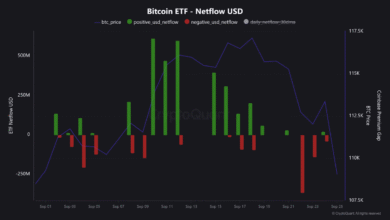
US Bitcoin mining challenges: Recent geopolitical events and economic difficulties threaten the status quo. The positioning of the United States’ Bitcoin Mining sector is at a pivotal juncture. Already struggling with growing energy prices, US-based miners are confronted with significant changes to the worldwide mining power distribution.
The CEO of Hashlabs Mining. A leading company in the sector has warned about the dangers presented by possible tariffs and trade disputes. These could change the global hash rate power and provide fresh difficulties for US miners. This paper investigates these potential changes and their broader implications for the crypto mining ecosystem.
Energy Trade Mining Impact
Energy costs and the availability of suitable legislative settings significantly impact the worldwide Bitcoin mining sector. Traditionally, miners have flocked to areas with cheap, plentiful energy, such as China, Canada, and the United States. However, these areas are experiencing changing political and economic dynamics today, mainly due to growing trade conflicts.

Recently, the US has been involved in more extensive trade conflicts with other countries, especially China and Canada. The mining sector may suffer significantly from applying tariffs and other trade restrictions. The main issue is whether these policies cover importing mining hardware or exporting energy resources.
Retaliation taxes on electricity exports. The main flow from Canada to the US might disrupt mining activities in the northern states, including New York, Michigan, and Minnesota, which depend on reasonably cheap hydroelectric power. Should these energy sources become less readily available, mining activity may migrate to other areas with better conditions.
Energy Mining Tariffs
US miners’ dependence on low-cost energy sources raises one of their most time-sensitive issues. Mining cryptocurrencies, particularly Bitcoin, uses a lot of energy; hence, miners are constantly investigating how to cut running expenses. Cheap hydroelectric electricity has long been crucial in maintaining low mining costs in states like Washington and New York. On the other hand, miners might be compelled to move or invest in alternative energy sources, as tariffs or new energy policies impede the flow of cheap electricity.
If tariffs are applied on these electricity imports, New York State, which has long been a hotspot for bitcoin mining because of its availability of cheap hydroelectric power from Canada, may experience a significant impact on its mining business. As miners are driven to migrate to other nations with more consistent energy prices, such as Russia or Kazakhstan, their departure could cause the general Bitcoin hashrate in the US to drop. Such changes will hurt US miners and influence the larger Bitcoin Price by centralizing mining power in fewer areas.
Crypto Mining Challenges
Rising energy costs, the growing complexity of mining techniques, and the continuous volatility of cryptocurrency values have all combined to underlie growing pressure on crypto mining’s profitability. Miners are already experiencing financial difficulty from a decline in hash price, even without the additional tariff risk. Measuring mining profitability, hash prices dropped dramatically over recent months, making it more challenging for miners to continue operations free from significant losses.
Miners must invest in more advanced equipment and energy capacity to be competitive as global mining power and network hash rate rise. Small enterprises, which may not have the funds for new hardware and energy, are under pressure. Taxes on the US crypto mining sector could force miners to cut operations, find cheaper choices, or abandon the market.
Bitcoin Mining Migration
The warnings from Hashlabs Mining arrive at a time when hash rate distribution is already witnessing notable changes worldwide. China’s recent crackdown on bitcoin mining has driven many miners. Especially those in the US, Kazakhstan, and Russia, are migrating to other nations. Although the US has become a significant mining center since China’s prohibition. Any possible change in energy availability or the implementation of tariffs could cause miners to migrate once more in search of more stable areas.

Kazakhstan, Russia, and Iran attract miners with low energy prices and lenient rules. If US miners have to contend with an unstable energy supply or higher operating costs, these countries could gain more hash rate power. Since fewer governments and businesses control most Bitcoin mining, this move could affect its decentralization.
US Crypto Mining Strategy
The road forward for the US crypto mining sector will call for both strategic planning and flexibility as it confronts more challenging obstacles. Miners must diversify their activities by looking at new energy sources, forming alliances with other sectors, or investigating new business models. Some businesses are considering using other technologies, such as artificial intelligence and high-performance computing, to exploit their mining infrastructure for different uses.
Furthermore, forward-looking financial products, like hash rate contracts, could provide miners with a means of capital security and price volatility hedge without depending solely on present mining income. While this offers miners a means of weathering the storm, it adds fresh complexity to an already tricky sector.
Final thoughts
With tariffs, changes in energy policy, and geopolitical movements posing significant hazards to the sector, US crypto mining’s future is unknown. Although the US has long led in bitcoin mining, it now struggles to keep its leadership in the face of political pressure, growing expenses, and competition from other areas. Miners will have to be flexible, creative, and ready to fit an often shifting terrain as the sector develops.








